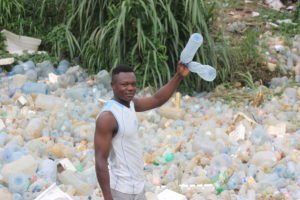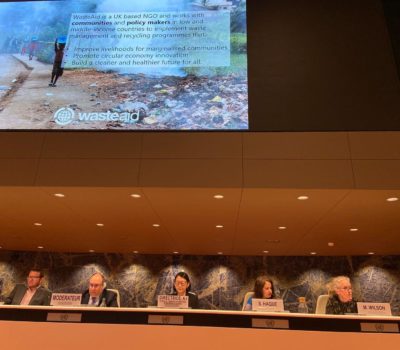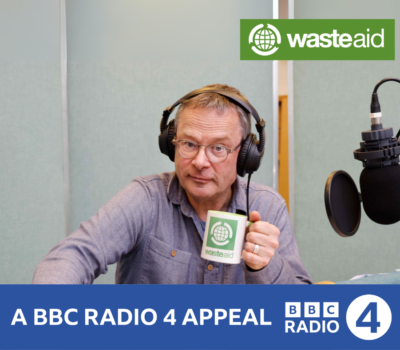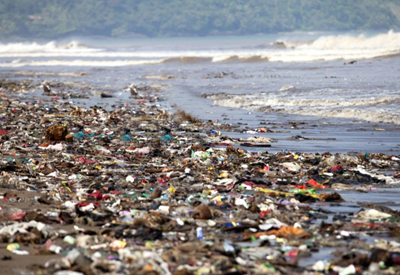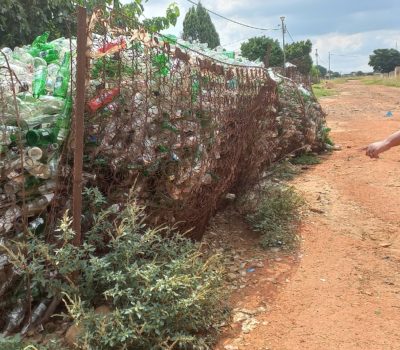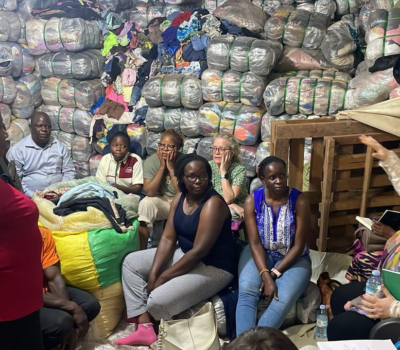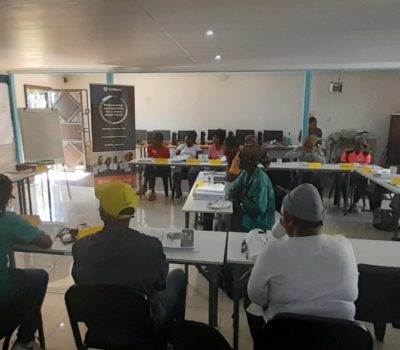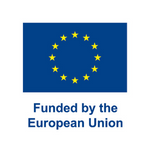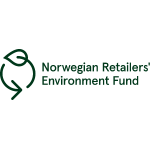WasteAid’s 5 R’s of the circular economy
News
Author: Holly
Published: 14 June 2024
At WasteAid, we work with communities and policymakers in countries impacted by the global waste crisis to help them implement waste management and recycling programmes through education, networking, and training.
Our approach is anchored on inclusive circular economy principles to ensure that people and the planet thrive.
But we often get asked, “What is the circular economy?”. Here we explore things in a bit more detail.
What is the Circular Economy?
In a circular economy, goods are kept in circulation and are either reused for their initial purpose or repurposed and given a new lease of life. By reusing and recycling products, businesses reduce waste and harmful emissions. For example, Veja Sneakers which uses recycled plastic bottles and polyester in its shoes; or Nudie Jeans which uses recycled cotton and also sells repurposed and repaired old jeans. The circular economy covers many different product sectors; e.g. food, clothes, plastics and takes as its model, Nature, where the end-products of one life cycle provide the beginning for the next, and so on.
This approach makes absolute sense when you consider the scale of waste we produce. More than two billion tons of waste each year. That’s six times the weight of the total population of the planet. And it’s growing fast – modern society’s disposable lifestyle is impacting every corner of the planet. Despite this, just 9% of the global economy is circular – so there is plenty of opportunity for WasteAid’s project to make a positive difference to people and the environment!
At WasteAid we work in low-income countries and communities to provide practical waste-systems solutions. But – importantly – these solutions are also designed to provide dignified, sustainable and valuable livelihoods (and markets) for people living at the sharp end of the waste crisis. Our projects are based upon a circular economy approach, where waste products and goods are given a second life.
WasteAid and the Circular Economy
WasteAid’s commitment to developing a Circular Economy.
For WasteAid, a circular economy has the following five features:
Reduce: In South Africa, around 1 in 3 people don’t have access to regular waste collection services. Leaving them with no choice but to dump or burn their waste.
WasteAid, alongside researchers from the University of Portsmouth, ran a pilot study in the Thembisile Hani Local Municipality of the Mpumalanga Province. We worked with community, and educational leaders and artists to educate people on the dangers of dumping and burning waste through art and song. The project also aimed to increase recycling, support informal waste collectors and introduce community drop-off points for recyclables.
Our aim was to increase recycling, support informal waste collectors and introduce community drop-off points for recyclables. This was a success. By the end of the pilot, the amount of dumped and burned waste in the region, had fallen by 27.7%.
Reuse: Embracing a circular economy by diverting electronic, textiles, and organic waste from landfills for upcycling. not only reduces the demand for new resources, but also minimises environmental pollution. Take Mpho Motatinyane in South Africa, who took part in our Wastepreneur programme. Here she tells us how she is able to make an income by reusing cardboard to make educational resources.
Mpho Motatinyane entered our Waste Entrepreneurial Fund Challenge to help get her recycling business off the ground. She noticed the high amount of cardboard boxes and paper discarded by her son’s school and spotted an opportunity to reuse the materials, turning them into spelling and educational cards for students. Mpho enrolled in our 12-week course where she learned about the circular economy and business basics such as budgeting and forecasting. With WasteAid’s support, Mpho’s business secured 80 orders in the first month alone and she hired two part-time employees.
Recycle: One of the ways we help communities tackle the global waste crisis is by supporting waste collectors. We help waste collectors to better sort and clean their waste. We’ve helped them to foster links with buy-back centres and supported buy-back centres to access onward markets to improve the value waste collectors receive for their waste and help build demand for the waste.
For example, waste collectors often collect flexible plastics which have been dumped. Buy-back centres then sell the plastic to large manufacturers who shred the plastic and then it gets sold again to recyclers. This is when the plastic gets a new lease of life. The benefit of supporting waste collectors is that it not only helps the environment but it also provides job opportunities, changing the lives of the communities where our programmes are implemented.
Repeatable: Our programmes are proven to work and are designed to be implemented in new regions, markets and economies. For example, we recently announced that we’re launching our ‘wastepreneur’ programme in Uganda for the first time – after previously testing it in South Africa.
Relationships: A circular economy approach is not just about individual businesses but will ideally engage the wider social economy in a region. It is a new way of thinking about materials and markets. So, we bring together people at every stage of the waste value chain to provide mentoring, technical training, and facilitate innovative solutions to community waste challenges.
We run a Circular Economy Network in countries including Gambia and South Africa. The purpose of the network is to raise awareness of a circular economy and its benefits and connect stakeholders with individuals who are working to find solutions to the waste crisis. Currently, in The Gambia, the Circular Economy Network has around 165 active members.
Supporting our Circular Economy projects
We are seeing exciting progress with many of our projects. We are ambitious about what we think is possible in the near future. We’re currently aiming to raise £1 million in time for for our 10-year anniversary next year. This fundraising campaign will allow us to support even more people impacted by the daily consequences of the global waste crisis through our programmes, such as those related to the circular economy.
Discover you can support our campaign here.




